![cc_mask@2x[1]](https://snobbyrobot.com/wp-content/uploads/2013/07/cc_mask@2x1.jpg) For almost a decade, original content for the web has exploded in popularity across America and around the world. Whether it’s popular comedies like THE GUILD, dramas like the landmark ANYONE BUT ME, action thrillers such as CLUTCH, or non-fiction/reality content like THE ANGRY VIDEO GAME NERD, web series have provided viewers with a diverse variety of programming choices. Yet, just as more web series continue to reach wider audiences on the web, a major portion of that audience has been, with some exceptions, mostly unserved: the deaf and hard of hearing, as well as viewers of foreign language web series who cannot understand the on-screen action without the benefit of subtitles in various languages.
For almost a decade, original content for the web has exploded in popularity across America and around the world. Whether it’s popular comedies like THE GUILD, dramas like the landmark ANYONE BUT ME, action thrillers such as CLUTCH, or non-fiction/reality content like THE ANGRY VIDEO GAME NERD, web series have provided viewers with a diverse variety of programming choices. Yet, just as more web series continue to reach wider audiences on the web, a major portion of that audience has been, with some exceptions, mostly unserved: the deaf and hard of hearing, as well as viewers of foreign language web series who cannot understand the on-screen action without the benefit of subtitles in various languages.
In 2010, the 21st Century Communications and Video Accessibility Act was passed into law by President Obama. The law requires internet streaming of TV shows to feature closed-captioning, but amidst the new legislation was a loophole that did not require the same provisions for web series. Further complicating the matter is the fact that many web series creators tend to consider captioning and subtitling their shows as an afterthought, even though the technology to do so is free and at their fingertips. One viewer and activist is out to change all of that.
Beginning in the late 1980‘s, Jamie Berke, a veteran writer and activist for the deaf community, spearheaded efforts to caption videotaped programs through the successful Caption Action campaign. Born profoundly deaf, Berke had years of progressive hearing loss and became completely deaf. Berke has a cochlear implant but is still deaf, but her advocacy continues, and now she’s set her sights on web series. “Web TV is not the future; it is now. This is the new world that deaf and hard of hearing people are primarily left out of,” Berke says. For several years, she has fought to make popular web series accessible to both hearing impaired and non-English speaking audiences through her blog Caption Action 2 (launched in 2010) and with her other blog Captioned Web TV, which launched last August. Captioned Web TV features an up-to-date listing of all web series that are, or in the process of, being closed captioned and subtitled.

The biggest challenge in convincing creators to caption their content lies with the no-budget independent nature of web series. Though captioning itself is free it can be a heavy time sink for your typical web content creator already working four or five jobs at a time. Through her blog, Berke hopes to not only encourage more web series creators to caption their series, but also hopes to give them a chance to increase their viewership as a result of being promoted on the blog. Most importantly, the site offers tools and resources for producers who hope to add closed captioning and/or subtitles to their shows under the ‘Info For Web TV Producers’ section.
Berke’s blog has also benefited overseas viewers of web series, who also visit the blog to find captioned/subtitled web series. Nonetheless, Berke has had tremendous difficulties in trying to get web series creators and the sites that feature their shows to caption their content. “I find shows captioned in French, et al., but not English! I ask them to caption in English. The other problem I run into is that right now, YouTube is the primary platform supporting captioning. Blip.TV did for awhile, but now it seems to be gone. (It’s the) same thing with DailyMotion. Their captioning support seems to be gone, so I know of a lot of good stuff on Blip, but I have to try to convince them to also go on YouTube,” Berke says, adding that another popular hub for web series, Koldcast.TV, currently does not offer closed captioning for their web series. (Another video platform, Vimeo, also does not have support for closed captioning at this time, but Vimeo recently informed Berke that they will soon release a new video player with support for closed captioning.)
Another primary reason for the limited amount of captioned content on the web is a complete lack of awareness on the part of many web series creators. “Producers generally don’t think about captioning when planning their series, not even big companies! The Captioned Web TV blog has very little compared to how much is out there,” she says. As a result of this lack of awareness, many web series on Youtube currently employ the site’s automatic captioning system, one that not only is inadequate but also inaccurate in its translation of audio. “Many people think the automatic captioning on Youtube is good enough. It is not. It is riddled with errors, as you know. The captioning needs to be edited in order to be understandable. In addition, Youtube will not display the “CC” label unless the captions are edited,” Berke says.
Yet, despite those difficulties, she’s had several notable successes and her efforts have garnered positive attention throughout the industry, not to mention more followers on her Twitter (@deafnessguide). (Web series creators can contact Berke through Twitter to have their shows added to the Captioned Web TV blog). “Producers appreciate the free publicity and extra views. I’ve had comments from them,” she says. “I’ve actually had a better response from the smaller, poorer producers than from the bigger, wealthier producers! Example: I have asked the producers of the highest traffic web TV channels on Youtube to caption, with no response, but the producer of WALTER WANTS A WOMAN started captioning right after my request was made! After I made repeated requests, My Damn Channel started captioning everything, and they produce a lot, but I can’t get Funny or Die to caption anything.”
Along with adults, another key demographic also remains unserved, according to Berke: “Even Disney is not captioning its web TV shows! There’s so little closed captioned web TV for children (and) I give those shows top priority for publication! Disney has a popular one called WHERE’S MY WATER and it does not have captions.” Overall, Berke hopes to have more web series become easily accessible to the hearing impaired and to non-English speaking audiences, two critical markets that for the most part remain unserved. In fact, she says, captions and subtitles will also benefit hearing viewers of all ages as well. Through her blogs Caption Action 2 and Captioned Web TV, the commitment to serving those markets continues. “My community deserves access to the best web TV out there. I want awareness of captioning to get to the point where producers contact me, instead of the other way around!”
ON THE WEB:
CAPTIONED WEB TV: http://captionedwebtv.blogspot.com
CAPTION ACTION 2: http://captionaction2.blogspot.com and
http://www.causes.com/captionaction2
TWITTER: @DeafnessGuide

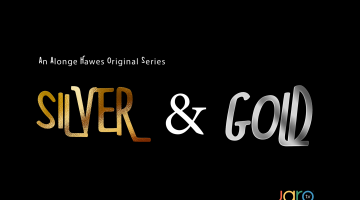

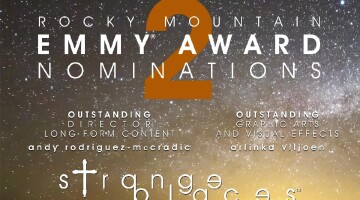

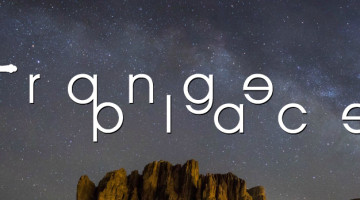
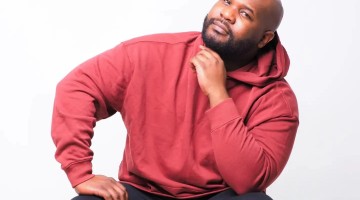
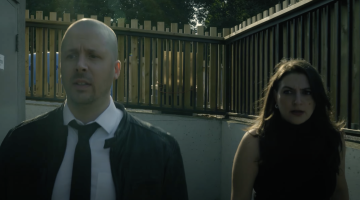
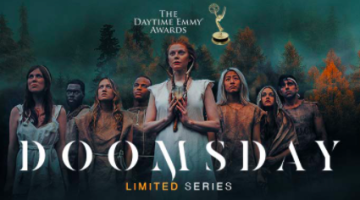
No Comment